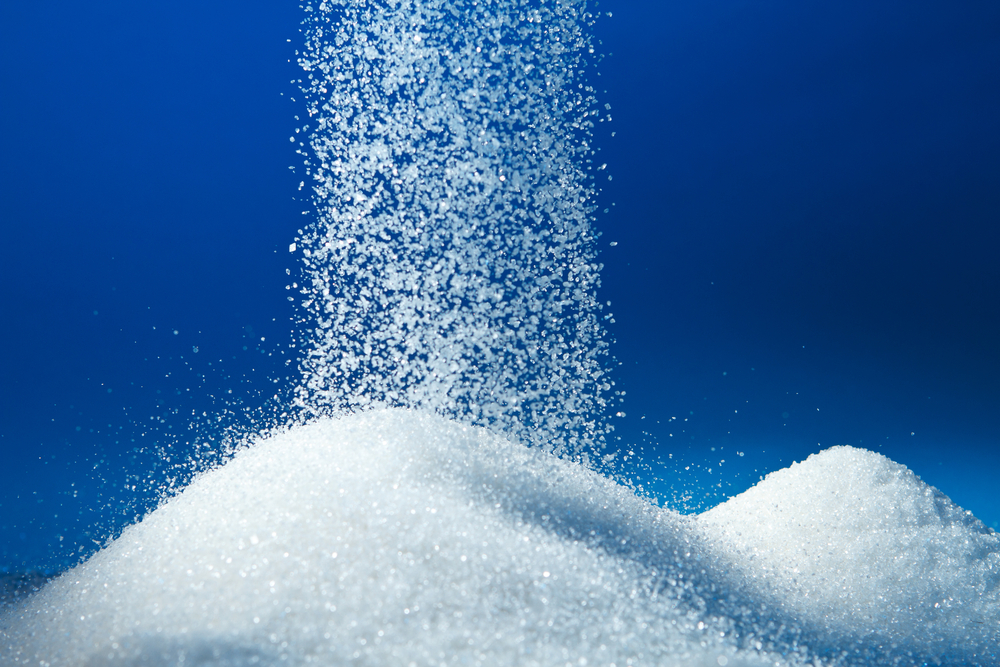Added Sugar May Boost Risk of Heart Disease, Death

Many Americans consume too much added sugar, a habit that not only increases the risk of obesity, but may also increase the risk of dying from heart disease, a new study suggests.
Between 2005 and 2010, about 71 percent of Americans consumed 10 percent or more of their daily calories from added sugar, according to the study. The World Health Organization recommends limiting calories from added sugar to less than 10 percent of your daily total.
What's more, people who consumed between 17 and 21 percent of their daily calories from added sugar were nearly 40 percent more likely to die from cardiovascular disease over a 14-year period than those who consumed about 8 percent of their daily calories from added sugar, the study found. [9 Snack Foods: Healthy or Not?]
People who drank seven or more sugar-sweetened beverages (such as soda) per week — a common source of added sugar — were about 30 percent more likely to die from cardiovascular disease during the study than those who drank one or fewer sugar-sweetened beverages per week.
"Our findings indicate that most U.S. adults consume more added sugar than is recommended for a healthy diet," the researchers, from the Centers for Disease Control and Prevention, wrote in the Feb. 3 issue of the journal JAMA Internal Medicine. The results "support current recommendations to limit the intake of calories from added sugars in U.S. diets," the researchers said.
Guidelines are inconsistent concerning just how much added sugar is safe to consume, but the American Heart Association recommends limiting intake of added sugars to no more than 100 calories (6 teaspoons) per day for women, and 150 calories (9 teaspoons) per day for men. One 12-ounce can of soda contains about eight teaspoons of sugar, or 130 calories, the AHA says on its website.
Added sugar and heart disease
Sign up for the Live Science daily newsletter now
Get the world’s most fascinating discoveries delivered straight to your inbox.
In the new study, researchers analyzed information from U.S. health surveys conducted from 1988 to 2010.
In the most recent survey, results showed that Americans consumed about 15 percent of their daily calories from added sugar, on average.
The more added sugar participants consumed, the greater their risk of death from heart disease. Those who consumed 21 percent or more of their daily calories from added sugar were about twice as likely to die from cardiovascular disease during the study compared with those who consumed between 0 and 9 percent of their daily calories from sugar.
The findings held even after the researchers took into account factors that affect heart disease risk, such as body mass index, blood pressure and total calorie intake.
Sugar limit?
It's important to note the study found only an association, and cannot prove a cause-and-effect relationship between consuming added sugar and dying from heart disease, the researchers said. It's possible that other factors not accounted for in the study, were responsible for the link, they said.
The researchers also assessed consumption of added sugar only at the study start, and it's possible that people changed their consumption over time.
Still, the study findings contribute "to the growing body of research on sugar as an independent risk factor in chronic disease," Laura Schmidt, a professor of health policy at the University of California, San Francisco, wrote in an editorial accompanying the study. "It underscores the likelihood that, at the levels of consumption common among Americans, added sugar is a significant risk factor for [cardiovascular disease death] above and beyond its role as empty calories leading to weight gain and obesity," Schmidt said.
The findings also highlight "the need for federal guidelines that help consumers set safe limits on their intake," of added sugars, Schmidt said.
The U.S. dietary guidelines say that a healthy diet is low in added sugars, but do not provide a specific limit on sugar. The guidelines do say that no more than 15 percent of daily calories should come from added sugar and solid fats together.
Follow Rachael Rettner @RachaelRettner. Follow Live Science @livescience, Facebook & Google+. Original article on Live Science.

Rachael is a Live Science contributor, and was a former channel editor and senior writer for Live Science between 2010 and 2022. She has a master's degree in journalism from New York University's Science, Health and Environmental Reporting Program. She also holds a B.S. in molecular biology and an M.S. in biology from the University of California, San Diego. Her work has appeared in Scienceline, The Washington Post and Scientific American.










